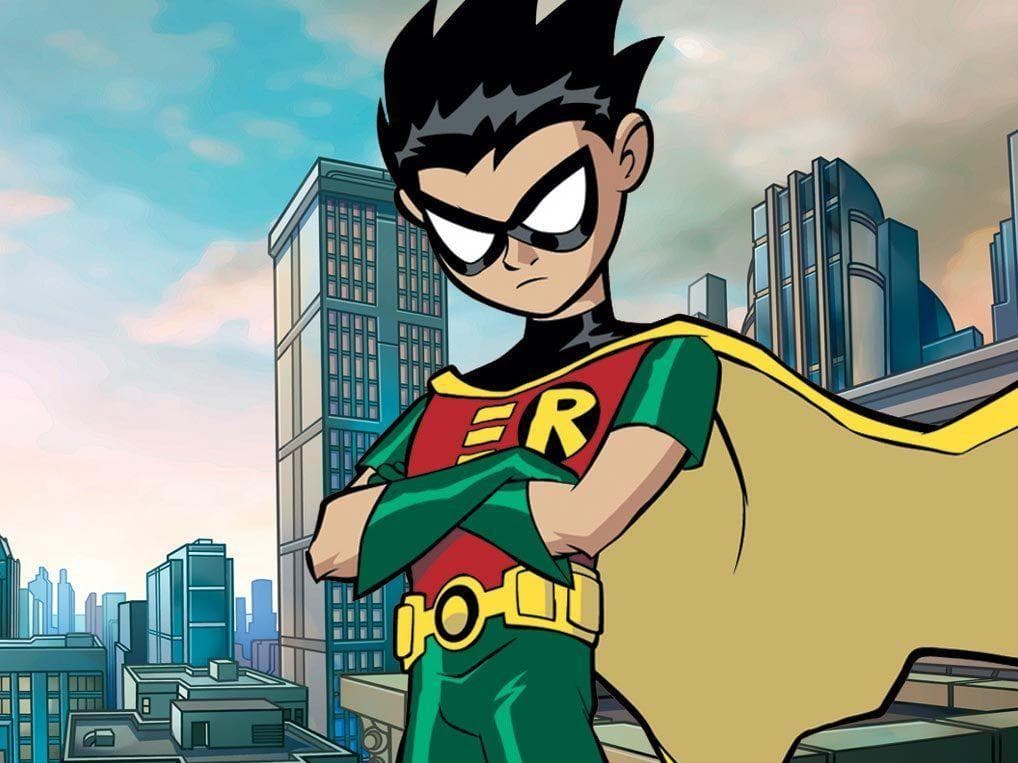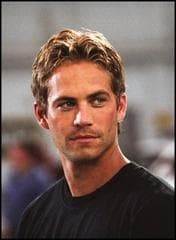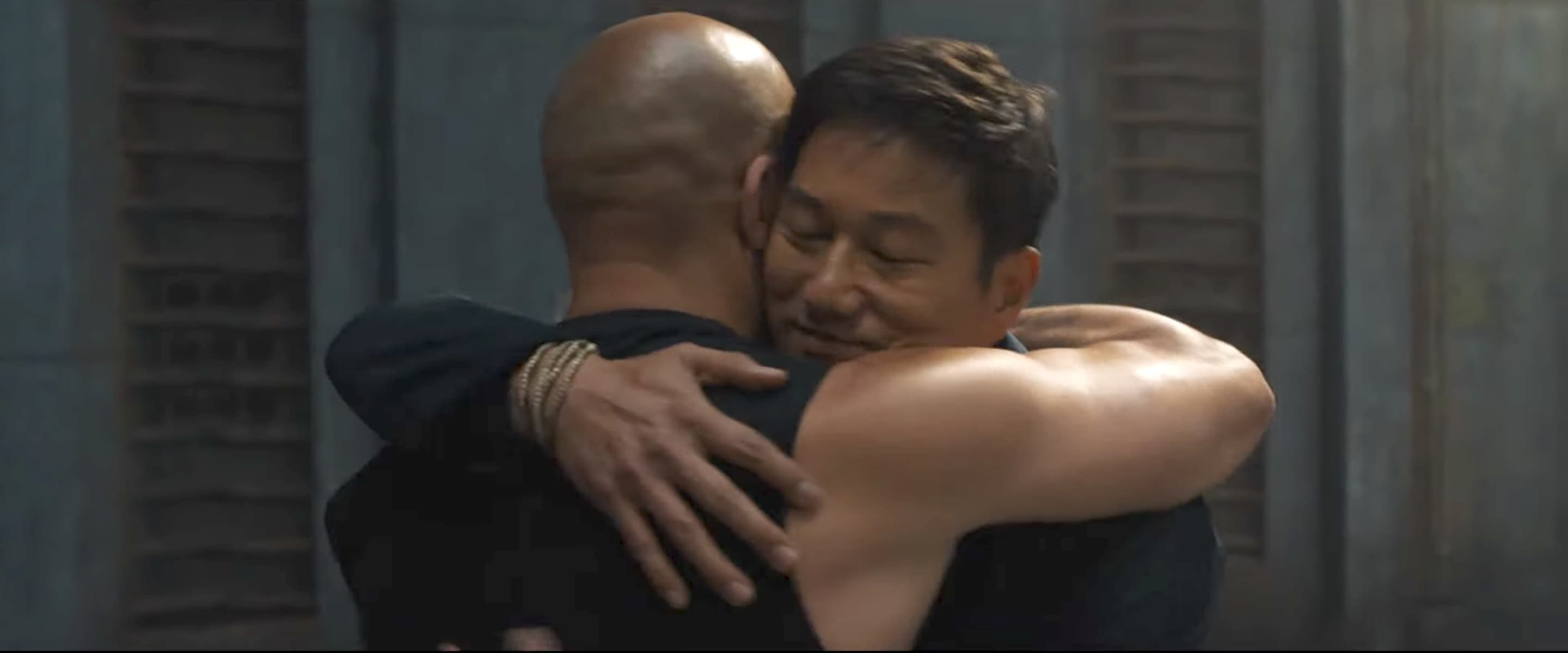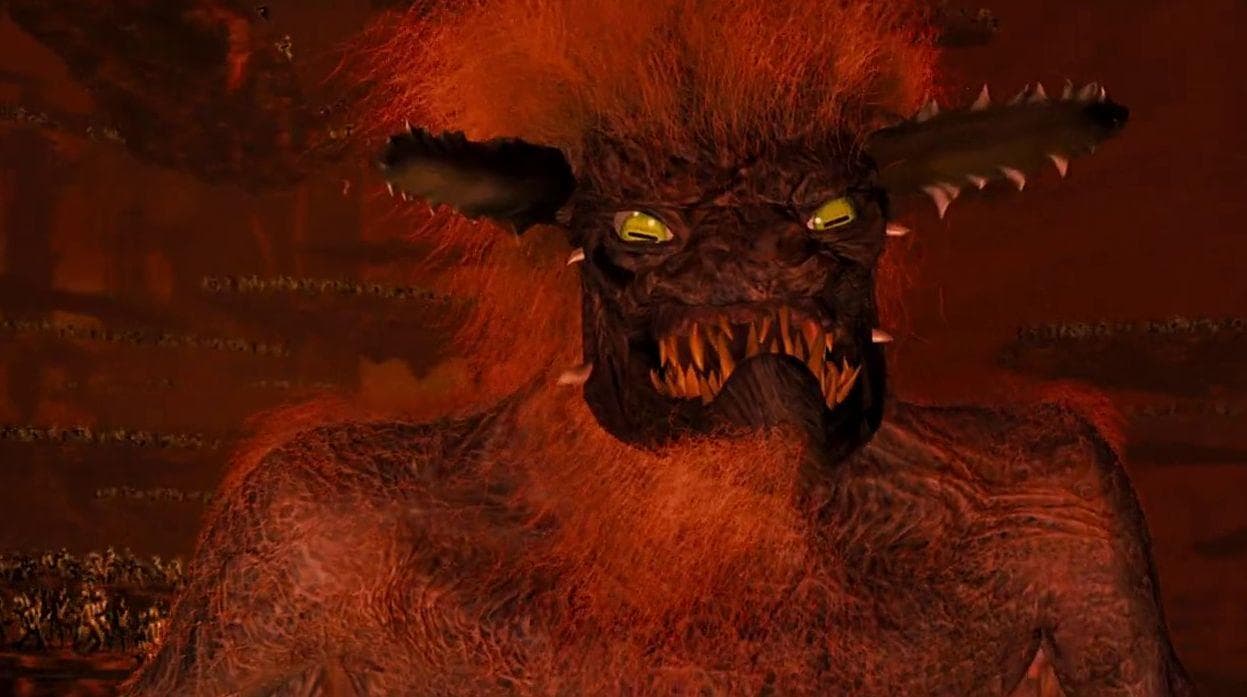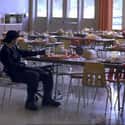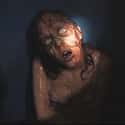-
(#1) Thirteen
- Holly Hunter, Evan Rachel Wood, Nikki Reed, Jeremy Sisto, Kip Pardue, Sarah Clarke, D.W. Moffett, Vanessa Hudgens, Jenicka Carey, Ulysses Estrada
Thirteen is an intense film about the effects of peer pressure on a 13-year-old girl named Tracy (Evan Rachel Wood). She begins as a quiet honors student in middle school, silently struggling with feelings of abandonment due to her recovering-alcoholic mother focusing more on her fellow ex-addict boyfriend, the stress of which leads Tracy to self-harm. After being made fun of by popular girl Evie (Nikki Reed) for having “Cabbage Patch” clothes, she decides it’s time to shed her little-girl persona and gets trendier clothes to fit in, attempting to befriend Evie.
Tracy steals money to impress Evie, and this willingness to engage in theft secures Evie's friendship. She in turn introduces Tracy to a world of sex, crime, and drugs. This exposure sparks a change in Tracy - she begins wearing more revealing clothing, drinking, doing drugs, and engaging in sexual behavior. This puts a deeper strain on Tracy’s life and relationships, even causing her mother to try sending Tracy to live with her father to break up her and Evie’s friendship. When Evie eventually turns on Tracy, the toxicity of their friendship finally becomes apparent to Tracy. After a huge blow-out with Evie, Tracy, Tracy’s mom, and Evie’s current guardian, the extent of Tracy’s self-harm is exposed. The movie ends with an unnerving shot of Tracy spinning and screaming on a merry-go-round at the park.
The film garnered mixed reviews upon its 2003 release, with critics claiming that it glorified self-harm and was exploitative of young girls, while others considered it a raw, unfiltered look into the life of Valley Girls and the early sexualization they endure from society at large. The two young actors were both 14 years old during filming, and despite growing very close during their time together, they didn’t speak for many years until finally reconnecting in their early 20s. About this, Reed recalled:
We were too young to realize this at the time, but there were a lot of people that were kind of pitting us against each other and making it a competitive atmosphere. Which, now, in hindsight, I’m like, “Of course, because isn’t that the recipe for how [to] treat all young women in this industry?”
-
(#2) Bully
- Brad Renfro, Rachel Miner, Nick Stahl, Bijou Phillips, Michael Pitt, Kelli Garner, Daniel Franzese, Leo Fitzpatrick
The story of the 2001 film Bully is not an easy one, as it features themes of assault, abuse, and murder. Following the story of South Florida high school dropouts Ali, Lisa, Bobby, and Marty, who become friends and quickly engage in sexual contact with one another, both consensually and non-consensually. Bobby is the bully of the group, assaulting both Ali and Lisa throughout the film, as well as emotionally and physically abusing Marty since they were very young.
Finally sick of the abuse, Lisa proposes they murder Bobby, calling on the aid of a few other teens. When they fail to follow through with their initial plan, they turn to a supposed “hitman,” a friend of Ali’s named Derek. The group initiates a new plan in a remote canal, luring Bobby with the promise of sex, and Donny begins the act by stabbing Bobby in the neck. While the others run away in horror, Marty eviscerates Bobby, and after Derek strikes him with a baseball bat for good measure, they dump the body in the swamp.
Overcome with guilt and trauma from witnessing the murder, Lisa and her cousin admit what they’ve done to some friends, and Ali phones in an anonymous tip to the media about Bobby’s death. They are all eventually arrested or turn themselves in and appear in court, where Marty and Donny start an argument that implicates them all, securing their guilt in front of an onlooking courtroom. Several of them receive life sentences, and most notably, Marty is sentenced to death.
Based on an actual murder case from 1993, the film is brutal, rife with gratuitous nudity and graphic sex scenes. While its director, Larry Clark, was attempting to tell a raw story of kids getting in way over their heads, he reflects that he clearly exploited these young actors by showing their bodies and presenting them as air-headed kids only interested in sex and violence.
-
(#3) Kids
- Leo Fitzpatrick, Justin Pierce, Chloë Sevigny, Sarah Henderson, Rosario Dawson, Harold Hunter, Yakira Peguero, Joseph Knofelmacher
Another film captained by Bully’s Larry Clark, Kids sparked just as much controversy in 1995, as it showed a group of teenagers in New York City having sex and taking drugs. It follows a boy named Telly and opens with him sleeping with a 12-year-old, later bragging about it to his friend Casper. The two shoplift a bottle of liquor and go to their friend Paul’s apartment, where they smoke cannabis and inhale nitrous oxide out of balloons. The narrative shifts to Ruby and Jennie among a group of girls discussing sex, in which we learn that Jennie tested positive for HIV. Quickly realizing she got it from Telly, she spends the day attempting to locate him to prevent other girls from getting it as well.
The film switches back to Telly, who steals money from his mother and goes to buy cannabis in Washington Square Park. While there, Casper bumps into a man that begins threatening and pushing the boy for his carelessness, provoking Casper’s friend to strike the man on the head with a skateboard. After the man collapses, other skaters join in, stomping and hitting the man until he is knocked unconscious. The boys discuss whether or not they’ve killed the man when a 13-year-old girl named Darcy draws Telly’s attention. He convinces her to accompany them to the pool and then a house party.
Meanwhile, Jennie arrives at a club in search of Telly but has a pill shoved into her mouth, which turns out to be a depressant. By the time she gets to the house party, the drug has taken effect, and when she discovers Telly is having sex with Darcy, she cries and passes out on the couch among other sleeping attendees. A drunk Casper assaults a sleeping Jennie, thus exposing himself to HIV, and wakes naked and confused the next morning.
The film is without question very controversial, especially due to the presence of drugs on set for the teen stars. Since the film’s release, two have died in the following decade from suicide and drug overdoses. Actor Hamilton Harris has opened up about how exploitative he felt the film’s narrative was and how the subsequent trauma inspired him to write a documentary about the film called The Kids.
-
(#4) Elephant
- Alex Frost, Eric Deulen, John Robinson, Elias McConnell, Jordan Taylor, Carrie Finklea, Nicole George, Brittany Mountain, Alicia Miles, Kristen Hicks, Bennie Dixon, Nathan Tyson, Timothy Bottoms, Matt Malloy
The second film in director Gus Van Sant’s “Death Trilogy,” Elephant is the harrowing chronicle of the events surrounding a school shooting in the suburbs of Portland, OR. Based in part on the 1999 Columbine High School massacre, we meet a cast of students prior to the shooting in short scenes of their daily lives: John struggles with his alcoholic father, the outcast Michele struggles with body issues, John’s friend Acadia attends a Gay-Straight Alliance meeting, Elias builds a portfolio of student photographs, and bulimic Nicole, Brittany, and Jordan complain about their parents.
Unbeknownst to any of these students, Alex and Eric are planning an attack on their school. We see them have a short sexual encounter in the shower, as well as flashbacks of them ordering weapons online and planning their onslaught. On the day of the shooting, Alex and Eric enter the school armed and encounter John, who they tell to leave. Realizing what's going to happen, John attempts to warn others but is mostly ignored.
When the propane bombs Alex and Eric planted in the cafeteria fail, they begin shooting indiscriminately, killing almost all the teens shown earlier. The two take a seat in the cafeteria and, surrounded by half-eaten lunches and deceased students, they discuss who they’ve shot. Alex kills Eric mid-sentence. The film ends with Alex discovering two students hiding in the freezer, to which he tauntingly says, “Eenie, meenie, minie, moe,” while deciding who to kill first. The film cuts to the credits before the decision is made.
Elephant brings a unique sense of realism in that it employs inexperienced actors and introduces each character without bias, something critics have praised it for. Despite the compassionate way in which it addresses school shootings, it was still a polarizing film - critically it was well-received, but the difficult subject matter left many viewers uncomfortable.
-
(#5) Menace II Society
- Tyrin Turner, Jada Pinkett Smith, Vonte Sweet, Larenz Tate, MC Eight, Ryan Williams, Too $hort, Samuel L. Jackson, Charles S. Dutton, Glenn Plummer, Bill Duke
Set in the Watts and Crenshaw neighborhoods of LA, Menace II Society follows the story of Caine and his best friend, O-Dog, as they're rushed to pay and leave a liquor store as the cashier suspects the boys are there to steal something. When the cashier makes the mistake of saying, “I feel sorry for your mother,” O-Dog fatally shoots him and his wife, robs the cash register and wallets, steals the surveillance tape, and runs off with Caine. O-Dog later shows off the surveillance tape of his crimes to friends, despite Caine’s irritation and warnings.
When Caine and his cousin, Harold, are carjacked while on the way home from a party, Caine is injured and Harold is killed. Caine learns the location of the carjackers, and with the help of O-Dog and their friend A-Wax, they hunt them down and avenge Harold’s death. Caine and O-Dog continue their entanglement with crime and drugs, eventually leading to a fateful incident in which the cousin and friends of the woman Caine impregnated and dropped do a drive-by shootout that fatally wounds Caine. As he slowly dies, he recalls his grandfather asking if he even cared should he live or die, and in those final moments, Caine realizes he does care, but it’s too late.
According to directors and twin brothers Albert Hughes and Allen Hughes, the movie was made to let white people know what was really going on in the inner city. Critics responded well to it, claiming it was a gritty, unforgiving look into the complicated and violent world that people are still living in.
-
(#6) Precious: Based on the Novel Push by Sapphire
- Gabourey Sidibe, Mo'Nique, Paula Patton, Lenny Kravitz, Mariah Carey, Sherri Shepherd, Xosha Roquemore, Chyna Layne
Precious tells the story of 16-year-old Precious and her life in Harlem with a physically and verbally abusive mother. After being raped by her father before he disappeared, young Precious is left with two children, a daughter with Down syndrome and a second child she is currently carrying. After learning of this second pregnancy, she's sent to an alternative school in the hopes that she can change her life for the better. In order to escape her traumatic daily life, Precious often daydreams of a world in which she is loved, whether it’s as a singing starlet or a white woman with blonde hair.
Precious finally learns to read and write at this new school and even reveals who the father of her children is to a social worker. After giving birth to her second child, Abdul, her mother deliberately drops the newborn and attacks Precious, revealing that they’ve been cut off from welfare due to Precious reporting the sexual abuse to the social worker. Precious fights back, flees with Abdul, and eventually finds shelter in a halfway house with the help of her teacher. Unfortunately, Precious then learns that her father has died from AIDS and she herself is HIV-positive. When her mother admits that she always hated Precious for stealing her man and “letting him” abuse her, Precious cuts all ties with her mother, now having seen the woman for who she truly is. Precious leaves with her two children and plans to complete her GED, go to college, and start a new life.
The story is challenging in its heart-breaking themes, and while many have praised it, some still question if it depicts a racist cliché. In many ways, it shines a light on the rampant racism and social inequity that resulted from Ronald Reagan’s presidency and Bill Clinton’s welfare reform, but the book’s author, Sapphire, argues that child abuse is not Black. Regardless, it’s hard to look away from the drama that unfolds in Precious, and it will keep many asking the same questions about race and poverty in America for years to come.
-
(#7) Battle Royale
- Beat Kitano, Chiaki Kuriyama, Kou Shibasaki, Aki Maeda, Ai Maeda, Anna Nagata, Minami Hinase, Tatsuya Fujiwara, Taro Suwa, Takashi Tsukamoto, Masanobu Ando, Yūko Miyamura, Sousuke Takaoka, Kanako Fukaura, Taro Yamamoto, Satomi Hanamura, Takashi Taniguchi, Sayaka Kamiya, Eri Ishikawa, Yūki Masuda, Reiko Kataoka, Ai Iwamura, Takayo Mimura, Nanami Ohta, Yukihiro Kotani, Michi Yamamura, Aiko Nogami, Yutaka Shimada, Akihiro Ugajin, Yasuomi Sano, Yukari Kanasawa, Mai Sekiguchi, Satomi Ishii, Tomomi Shimaki, Ren Matsuzawa, Asami Kanai, Hirohito Honda, Sayaka Ikeda, Tamaki Mihara, Tsuyako Kinoshita, Misao Kato, Gouki Nishimura, Ryou Nitta, Takako Baba, Haruka Nomiyama, Shigehiro Yamaguchi, Shigeki Hirokawa, Satoshi Yokomichi, Osamu Ohnishi, Shin Kusaka, Junichi Naitou, Daisuke Yazawa, Hajime Yoneda, Nobuki Baba, Hideaki Kojima, Hideaki Kawashima, Takashi Komori, Kazuhiro Yokokura, Naoki Iwasawa, Shigeki Homma, Gou Ryugawa, Yousuke Shibata, Tetsu Masuda, Suzuka Tonegawa, Kôji Tokuhisa, Tomu Asakawa, Tsuguharu Niizaki, Ryôji Sugimoto, Kenzô Shirahama, Ryôta Nakamura, Kazuo Araki, Hiroshi Kitagawa, Kiyoyuki Matsumoto, Kanji Okumura, Takeyuki Hirai, Umiji Tasaki, Mitsuaki Tachikawa, Akira Yoshizawa, Gôshi Matsuhara, Hidetsugu Okumura, Shôji Takano, Jun'ichi Nashiki, Shirô Gô, Mikiya Sanada, Kazutoshi Yokoyama, Yôichi Murakami, Kotaru Kamijou, Ken Nakaide, Yûya Nakahara, Ayana Noguchi, Hirobumi Seki
The film Battle Royale defined a genre that would later influence stories like Hunger Games and countless other movies, TV shows, and games with a fight-to-the-death premise. In fact, it's now the name of its own genre, in which a select group of people is made to kill one another until only one survivor remains.
Based on Koushun Takami's 1999 Japanese dystopian novel, Battle Royale takes place after a major recession, prompting the Japanese government to pass legislation to deal with juvenile delinquency, resulting in the creation of the annual Battle Royale. For three days on a remote island, students outfitted with explosive collars that will detonate should they not comply must fight to the death until only one victor remains.
Given rations, a map, and a random weapon, the violence begins with 12 students dying within the first six hours, four of them by suicide. Loyalties change and betrayals ensue as some students enter pacts to protect one another, while others, like Mitsuko Souma and Kazuo Kiriyama, begin killing without remorse. On the final day, with only three students remaining, one of them manages to hack the collars and tricks the teacher running the Battle Royale into believing he killed the other two survivors. The last three students confront the teacher face to face, killing him and leaving the island together on a boat.
The Japanese film was banned in the US for over a decade, but that didn’t stop it from becoming a cult classic around the world. To the Japanese public, the film was scandalous, but it still managed to gross over 3 billion yen (about $30 million), ranking third-highest behind Spirited Away and Pokémon 4Ever. While the story itself is both brutal and controversial, many of the actors reflect fondly on their experience on set, saying it felt almost like being at school where they gossiped together and went to karaoke in the evenings.
-
(#8) Heathers
- Winona Ryder, Christian Slater, Shannen Doherty, Lisanne Falk, Kim Walker, Penelope Milford, Glenn Shadix, Lance Fenton, Patrick Laborteaux, Jeremy Applegate, Jon Matthews, Carrie Lynn
Heathers has it all - teen heartthrobs, high school love, comedy, murder, and suicide. The film tells the story of Veronica (Winona Ryder) and her three friends, all named Heather, who make up the most popular and feared clique in their school. Veronica is sick of them abusing their power, and when a new student, the handsome and rebellious JD, pulls a gun and fires blanks to scare some bullies, Veronica becomes fascinated by him.
Drama occurs between Veronica and Heather Chandler at a frat party, and the latter vows to ruin Veronica’s reputation, causing Veronica and JD to plot revenge with a fake hangover remedy to make Chandler sick. JD jokingly pours drain cleaner into a cup, and Veronica mistakenly gives this to Chandler instead of the milk-and-orange-juice mixture she made. JD notices this but says nothing. Chandler drinks it and dies, and JD convinces Veronica to forge a note in Chandler’s handwriting to cover it up.
JD’s behavior becomes progressively more violent when he stages a suicide pact between two boys who spread vicious rumors about Veronica but uses real bullets to kill them instead of the promised tranquilizers. The couple escapes the police, but Veronica, fully terrified by JD’s behavior, breaks up with him. These events set off a chain of perceived suicide attempts at the school, all while JD plots to blow up the pep rally and kill everyone inside while making it look like a mass suicide. Veronica thwarts his plan, but he straps a bomb to his chest and detonates it after delivering his own eulogy.
The film was largely misunderstood to be about teen suicide, but director Michael Lehmann states it’s instead a satire of teen life. Even Lisanne Falk, who plays Heather McNamara, reminds viewers that no actual suicides take place and that they're all murders, saying, “Heathers is actually a revenge fantasy.” Despite this insistence - even during the first screenings in 1988 - many viewers and critics claimed the film was mocking the sensitive, very real issue of teen suicide.
-
(#9) Assassination Nation
- Odessa Young, Suki Waterhouse, Hari Nef, Abra, Bill Skarsgård, Bella Thorne, Joel McHale, Anika Noni Rose, Colman Domingo, Maude Apatow, Cody Christian, Kathryn Erbe, Danny Ramirez, Kelvin Harrison, Noah Galvin, Joe Chrest, J.D. Evermore, Lukas Gage
Positioned as a nod to the Salem Witch Trials, Assassination Nation takes place in a fictional town aptly named Salem and focuses on Lily and her best friends, Bex, Em, and Sarah. When a casual hacker named Marty receives info from an anonymous hacker about anti-gay candidate Mayor Bartlett engaging with male escorts and crossdressing, he sends it to the entire town, causing Bartlett to publicly take his own life. While Marty is questioned by police, a huge data dump of dirt on Salem's citizens is released to the public, triggering a cascade of leaked nudes, vicious revenge attacks, and shattered lives.
Residents arm themselves and don masks Purge-style, attempting to get revenge on those they believe wronged them. A masked boy named Nick, along with others, capture Marty and torture him until he admits the leaks came from Lily’s IP address. This confession is recorded and uploaded online before Marty is killed. Nick and company track Lily to Em and Sarah’s house, breaking in and starting a shootout that kills their mother. Em and Sarah are apprehended by a police officer, Bex escapes, and Lily flees to Nick’s house, who pretends to help but actually plans to assault and murder her for exposing the town’s secrets.
Lily manages to kill Nick, steal his weapons, and shoot the police officer to free her friends. She then makes a video proclaiming her innocence and calling others to stand up and fight back against those who tormented them. Other women and girls join her in battle, and after reclaiming Salem, they discover Lily’s little brother Donny is behind the hacks. Donny is charged with cyberterrorism, murder, and invasion of privacy, and when asked why he did it, he says, “For the lulz.”
Due to the imagery of four teens with weapons taking revenge against the hacking's fallout, the film had trouble securing ads on Facebook, Instagram, and YouTube. Regarding the marketing nightmare, the chief marketer for the film, Christian Parkes, said:
We knew that this film was a stick of dynamite. We didn’t want to dress it up into something it isn’t. This isn’t a feel-good coming-of-age story. It’s an honest meditation on where we are as a culture.
-
(#10) Mysterious Skin
- Michelle Trachtenberg, Joseph Gordon-Levitt, Elisabeth Shue, Mary Lynn Rajskub, Richard Riehle, Brady Corbet, David Lee Smith, Trieste Kelly Dunn, Billy Drago, Chris Mulkey, Bill Sage, Chase Ellison, Jeffrey Licon, Lisa Long, Larry Marko
Mysterious Skin tells the story of 8-year-old Little League teammates Neil and Brian and the sexual abuse they both suffered at the hands of their coach. While Neil remembers the events and leaves town after summer, Brian only remembers being in the crawl space of his house with a bloody nose and no memories of anything else. Perceiving his coach's actions as love, Neil becomes attracted to middle-aged men and begins performing sex acts for money at age 15, continuing this when he moves to New York City. After an emotional experience with a client who dies of AIDS, Neil stops selling himself and gets a job at a sandwich shop.
Meanwhile, Brian struggles with chronic nosebleeds, bedwetting, and blackouts since regaining consciousness in the crawl space, even having dreams of being touched by an alien-looking hand. This leads him to believe he was abducted by aliens for a time, but after seeing a photo of his Little League, he recognizes Neil as the boy that appeared in his dreams.
After Neil is assaulted and beaten by a client, he returns to his hometown to spend Christmas with his mother, where he and Brian meet again for the first time since their childhood. The two break into the house the Little League coach had previously rented, and Neil tells Brian how the older man had abused them and forced them to perform sex acts on one another. Brian cries in Neil’s lap, finally understanding the truth as carolers sing “Silent Night.”
The film drew much controversy for its focus on child abuse and pedophilia, with an Australian legislator calling for a ban and a spokesman for the Australian Family Association claiming the film could be used for the satisfaction of pedophiles or to even help groom children they were planning to abuse. Others suggested the film, told from the perspective of those abused, could show abusers the damage they do and make them feel repentant. Regardless, the film fought against an NC-17 rating and lost, ultimately releasing in theaters without a rating.
-
(#11) Megan is Missing
- April Stewart, Tammy Klein, Jennifer DiBella, Amber Perkins, Peter Renaud, Lauren Leah Mitchell, Andrew Doebbler, Paula Allen, Nikki Christie, Dean Waite, John Frazier, Marcus Dreeke, Yvette Bartosik, Josh Samson, John Maalis, Jon Simonelli, Rudy Galvan, Jay Gragnani, Craig Stoa, Earl Ledebur, Ali Sadiq, Jael Elizabeth Steinmeyer, Carolina Sabate, Brittany Hingle, Rachel Quinn, Kara Wang, Trigve Hagen, Tia Streaty, Caleb Wells
Revived by horror lovers on TikTok, Megan Is Missing tells its story in a found-footage format, using a mixture of home movies, web-chat videos, and news reports chronicling the disappearance of 14-year-old best friends Megan Stewart and Amy Herman. Megan is a popular honors student with a difficult relationship with her mother due to her drug addiction, while Amy holds onto her childhood with her collection of stuffed animals and is the target of bullying.
In an attempt to better fit in, Megan invites Amy to a rave party, but the night ends in discomfort as Amy is assaulted after refusing sex with a man at the party, only to find Megan performing oral sex on the party’s host in exchange for drugs.
Megan is given the social media handle for a supposedly 17-year-old boy named Josh, who claims his webcam is broken, keeping him hidden from sight. Megan becomes infatuated with him despite obvious red flags and inconsistencies. After not showing up when they planned to meet at a party, Josh convinces her to meet again, only this time it’s behind a diner. Next, we see news reports about Megan’s disappearance and footage of her being grabbed by a man on the security cameras of the diner.
Amy talks online with Josh, and when it’s clear she suspects him, he threatens her, and graphic pictures of Megan being horrifically tortured start appearing on fetish forums. Amy is later kidnapped as well while recording a video diary, and investigators later find her camera in the trash. Within the footage, Josh is unlocking the door to a BDSM chamber where Amy is chained to the wall and begging for her teddy bear. After assaulting her and forcing her to eat from a dog bowl, Josh tells her he will release her if she gets into a large plastic barrel, but within it, she finds Megan’s decaying body. Josh forces Amy inside with Megan’s body, and she begs for her life as he buries the barrel in the woods and walks away.
Officially banned in New Zealand, Megan is Missing was marketed as an educational film to bring attention to child online safety, but many found the over-sexualization of the young girls to be objectionable and the graphic content to be too disturbing. While director Michael Goi’s intentions were to educate and save lives, many maintain that it's little more than exploitative torture porn.
-
(#12) L.I.E.
In the 2001 drama L.I.E, an acronym for the Long Island Expressway, a teenager named Howie is grieving his mother's death in a car accident on the expressway and struggling with his distant father, who already has a new girlfriend a month after his wife’s passing. But Howie finds comfort with his delinquent best friend, Gary, to whom he is attracted, though he doesn’t know if Gary would return those feelings.
Along with their two other friends, Gary and Howie frequently break into houses in the neighborhood and are nearly caught stealing from middle-aged ex-marine Big John, who later confronts Gary and Howie about the theft and demands they return his items. When Howie can’t return everything, John implies he can repay him with sex, and Howie flees but later fantasizes about John.
When Gary steals money from Howie’s dad and leaves Howie behind for LA, Howie begins a delicate friendship with John and quickly realizes he holds sexual power over the middle-age man. While staying over at John’s house one night, displacing John’s jealous lover named Scott, Howie finds illicit content involving children, including pictures of an 11-year-old Gary.
Howie’s father is arrested for dangerous practices at his construction business, but Howie believes his father has abandoned him and goes to John with the intention of having sex. John explains the arrest to Howie, who breaks down crying, and he takes Howie to see his father in jail the next day. Afterwards, John sits alone in his car at a rest area where Scott arrives, heartbroken from John’s abandonment, and shoots him dead. The film closes with Howie watching the expressway, making a vow he would not let the Long Island Expressway get him, too.
The film was slapped with an NC-17 rating for its graphic violence and sexual activity, stirring up controversy for the way John was not portrayed as a cartoonish monster but instead a complicated character that has a sexual interest in teenage boys while also wanting to be a father. This humanization of John prevented filmmakers from appealing for an R rating, as the Motion Picture Association of America would not allow it.
-
(#13) River's Edge
- Crispin Glover, Keanu Reeves, Dennis Hopper, Ione Skye, Roxana Zal, Daniel Roebuck, Tom Bower, Constance Forslund, Leo Rossi, Jim Metzler
Deemed by some as the darkest teen film of all time, River’s Edge follows a group of teens Layne, Matt, Clarissa, Maggie, Tony, and John. While hanging out, John tells the group that he killed his girlfriend, Jamie. Clarissa and Maggie assume he’s joking, but John takes Layne and Matt to the river where Jamie’s body is. The sight deeply disturbs Matt, but Layne seems more concerned with covering up his friend’s crime.
Later that night, the whole group gets back together to see Jamie’s body, the two girls seeing that it is indeed not a joke. Layne then pushes Jamie’s body into the river and arranges for John to hide out at his friend Feck’s house while Matt shows the police Jamie’s remains.
When Layne, Clarissa, and Matt go to Tony’s house, they’re chased away by his father, who is armed with a shotgun. After an argument with Layne that gets them kicked out of his car, Matt and Clarissa talk about their conflicting feelings about Jamie's murder while John and Feck drink beer at the river’s edge along with Feck’s blow-up doll, Ellie. Feck reveals that he murdered his own girlfriend years ago, provoking John into bragging about how he strangled Jamie, displaying a delight that scares Feck.
As the sun rises, Feck shoots a sleeping John in the head and returns home. Police later break down Feck’s door and arrest him as the teens return to the river and find John’s body. The film ends with Matt, Clarissa, Tony, and Maggie attending Jamie’s funeral and crying as they see her for the last time.
Based on a real-life case from 1981, River’s Edge provoked controversy, along with good box office numbers. Many have remarked that it’s hard to know which characters to empathize with - the teens show indifference towards the senseless death of Jamie, and John himself had no real purpose for killing her, sympathetic or otherwise. It seems that Feck, while also a murderer, had the most conscience in the film, as he kills John for what he did.
The combination of black comedy, intense violence, and teenage apathy certainly make it a film that will continue to divide viewers for years to come.
New Random Displays Display All By Ranking
About This Tool
Our data comes from Ranker, If you want to participate in the ranking of items displayed on this page, please click here.

